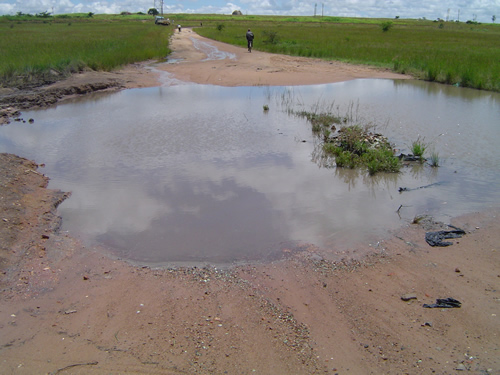Zimbabwe is one of 13 countries on the United States’ “Tier 3″ human trafficking list, according to a report of the Washington DC-based US Department of State. On this list Zimbabwe joins other countries Burma, Congo, Cuba, Dominican Republic, Eritrea, Kuwait, Iran, Mauritania, North Korea, Papa New Guinea, Saudi Arabia and Sudan. This is according to the Trafficking in Persons Report of 2010.
Nations on the Tier 3 list are those, “whose governments do not fully comply with the minimum standards and are not making significant efforts to do so“, as set by the Trafficking Victims Protection Act (TVPA) of 2000 enacted by the US. Meanwhile, 30 countries have been listed under the agency’s “Tier 1″ and Nigeria is the only African country. “Tier 1″ is distinguished to be those countries whose governments fully comply with the TVPA. They include Austria, Australia, Belgium, Canada, Denmark, France, Germany, Ireland, Italy, South Korea, Mauritius, Netherlands, Nigeria, Norway, Poland, Sweden, Taiwan, Netherlands, United Kingdom, and the US among others.
According to the US State Department, Zimbabwe is a, “country of origin, transit and destination for men, women and children subjected to trafficking in persons, specifically conditions of forced labour and forced prostitution.”
Zimbabwean women and girls had been subjected to sexual exploitation and forced into prostitution in countries like South Africa, Zambia, China, Egypt, United Kingdom and Canada.
“Men, women and children from Bangladesh, Somalia, India, Pakistan and the Democratic Republic of Congo, Malawi, Mozambique are trafficked through Zimbabwe en route to South Africa,” it said.
It also held that, “Zimbabwean men, women and children from rural areas are subjected to forced agricultural labour and domestic servitude.”
“Young men and boys are forced by Zimbabweans government security forces to work in the diamond fields of Marange district.”
“Women and men are lured into exploitative labour situations in Angola, United Arab Emirates, Malaysia and South Africa with false promises of jobs in construction, information technology and hospitality,” it also said. A full report on Zimbabwe is available from UNHCR here.
Countries in “Tier 3″ have been restricted assistance from the US under section 110(d) of the TVPA of 2000 and the US Office to Monitor and Combat Trafficking in Persons have made these clear. The President has determined to restrict assistance for Burma, Cuba, the Democratic People’s Republic of Korea (DPRK), Eritrea, Iran, and Zimbabwe. The report says, “The United States will not provide any non-humanitarian, non trade-related assistance to the Governments of Cuba, the DPRK, Eritrea, and Iran, and will not provide certain non-humanitarian, non-trade-related assistance to the Governments of Burma and Zimbabwe, until such governments comply with the Act’s minimum standards to combat trafficking or make significant efforts to do so.”
The agency cited that, “Zimbabwean law does not prohibit all forms of trafficking in persons, though existing statutes outlaw forced labour and numerous forms of sexual exploitation.” International Organisation of Migration (IOM) in Zimbabwe has this year launched a new project titled “Building National Response Capacity to Combat Human Trafficking in Zimbabwe” to assist Zimbabwe to craft comprehensive anti-trafficking legislation and strengthen the national referral system for protection and reintegration.










